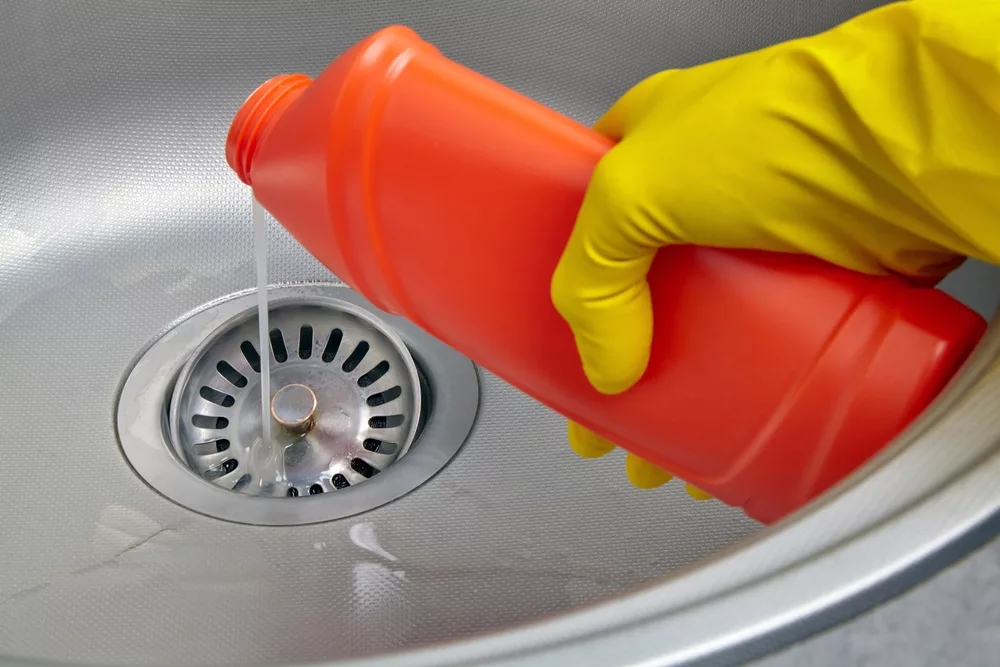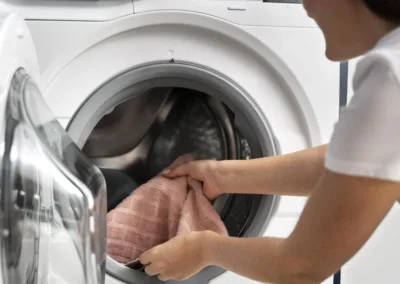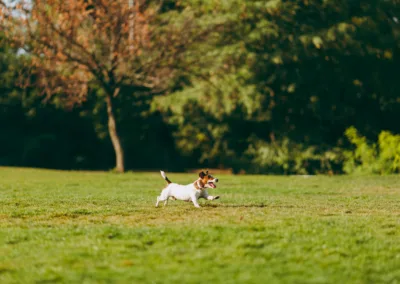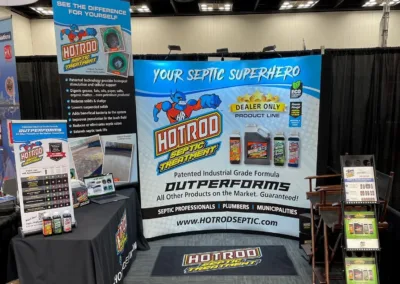
The Impact of Drain Cleaners on Septic Systems
Septic systems rely on beneficial bacteria to break down waste and maintain their functionality. Some drain cleaners contain harsh chemicals that can harm these essential microorganisms, disrupt the delicate balance in your septic tank, and lead to system issues. If you need a drain cleaner, it’s important to choose one that won’t compromise your septic system’s health.
Drain Cleaners to Avoid
First, let’s make sure you know what drain cleaners are not safe for your septic system.
Caustic Drain Cleaners
Don’t go for drain cleaners that contain caustic chemicals like sodium hydroxide or sulfuric acid. These chemicals damage your septic system and can harm the environment.
Non-Biodegradable Cleaners
Stay away from drain cleaners that do not break down naturally. These will accumulate in your septic tank and disrupt its functioning.
Foaming Drain Cleaners
While foaming drain cleaners can be effective, they often contain harmful ingredients that will harm your septic system’s bacteria. Always check the ingredients before making a purchase of drain cleaner if you don’t know for sure that it will be safe for your system.
If they are not safe, why do they exist?
Something that is safe for a city sewer system or RV holding tank is not necessarily safe for a leach field septic tank solution.
How to Identify Septic-Safe Drain Cleaners
Don’t worry, there are drain cleaners that are safe for your septic system, you just need to know what to look for
Opt for drain cleaners labeled as “biodegradable” and “non-corrosive.” These products are designed to break down naturally and won’t harm your septic system’s bacterial balance.
Another excellent choice for septic systems are enzyme-based drain cleaners. These use natural enzymes to break down clogs without relying on harsh chemicals.
There are even drain cleaners that are specifically formulated for septic systems and carry labels like “Septic Safe” or “Safe for Septic Tanks.” Even if a product says it’s safe for your system though, it’s a good idea to do a quick web search and look at reviews, what professionals have to say about the product, or even double check the ingredients.
What About DIY?
Maybe you’ve heard of some DIY drain cleaning methods, and are wondering if these are a better choice than the septic-friendly drain cleaners we discussed above. There are some homemade drain cleaning solutions that are safe for septic systems, but it’s important to understand which ingredients are safe and which are not. As previously mentioned, if the balance of bacteria inside the septic system’s ecosystem is thrown off by bacteria-killing materials, your system won’t function like it’s supposed to. Which could lead to more frequent septic pumping or a bigger septic system issue.
The safest DIY drain cleaning solution for your septic system is simply pouring hot or boiling water down your drain. This will help dissolve grease and other debris without harming your septic system. Another DIY cleaner that can be safe is baking soda and vinegar, used in moderation. They can help break down minor clogs and are not likely to harm the bacteria in your tank. But only use this method in moderation, using it in large quantities and more than necessary could cause problems for the biology in your tank, so be wary of the amounts you’re putting down your drain.
Using any harsh chemicals for DIY drain cleaning, like bleach or ammonia, in your septic system will disrupt the bacterial balance in your tank and lead to system problems. That’s because these kinds of chemicals have antibacterial properties that threaten the tank’s ecosystem.
Other Products That Aren’t Safe for Your Drain
Apart from drain cleaners, several other household products should never be poured down the drain if you have a septic system because they won’t only cause harm, but pose a risk to the environment and can even be illegal to pour down the drain. Here are some items to avoid:
-
-
-
- Paints and solvents
- Motor oil and automotive fluids
- Pesticides and herbicides
- Prescription and over-the-counter medications
- Harsh cleaning chemicals (e.g., bleach)
- Grease and cooking oils
- Coffee grounds and food scraps
-
-
When dealing with clogged drains and maintaining your septic system, it’s essential to make informed choices to protect your home and the environment. Opt for drain cleaners that are biodegradable, non-corrosive, and, of course, safe for septic systems. Avoid caustic chemicals and non-biodegradable products that can harm your septic system’s bacterial balance. Additionally, be mindful of other household items that should not find their way into your drains to ensure your septic system operates efficiently for years to come.


